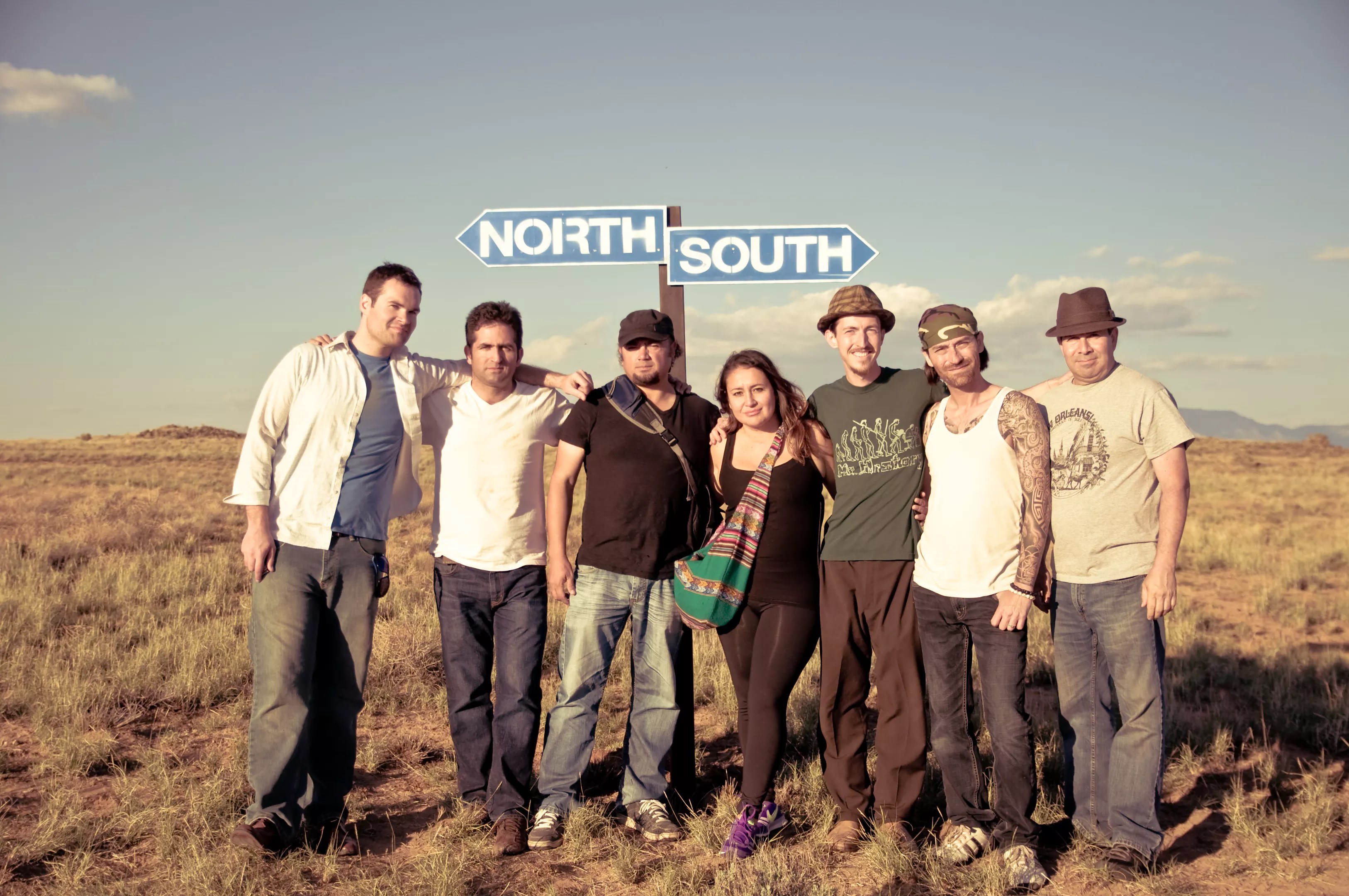
Courtesy of Baracutanga

Audio By Carbonatix
The seven members of the Albuquerque-based band Baracutanga write politically charged songs, injected with hope and South American, Afro-Cuban and Middle Eastern rhythms. Bolivian-born multi-instrumentalist Kilko Paz, who helped start the band seven years ago, says they definitely have hope for the future; otherwise, they wouldn’t write anything.
“We are fully convinced that music could be the answer, and art in general could be the answer to the many problems that we have in societies,” Paz says. “I think it’s very important that we spread that message, and then we try to protest through music.”
During the band’s dynamic live shows, the musicians usually switch instruments, and audience members usually dance from the beginning of the set until the last song, Paz says.
“South American music is very easy to dance to,” he continues. “We have cumbias, Brazilian samba, batucada and everything. But we combine dance with very strong political lyrics, because I think that’s a good combination. It’s not only talking about bad things without any hope. The music is kind of giving kind of the hope message, while the lyrics are talking about really deep matters.”
Take “Son de la Condenada,” from the band’s 2015 debut, Importados. It was written before Donald Trump was elected, but Paz looks at the song now as a kind of premonition. The song’s video rallies against bigotry and racism.
“The problems in the United States, this extreme racism and these groups of neo-Nazis, they’ve been there forever, but they came out from under the carpet,” Paz says. “They now see a representation of themselves in the government, in the public figures, which is actually good, because otherwise it’s exactly the same for years, but the problem is always going to be there. Sometimes it’s good that we really face the problem in the worst possible manner to realize how we can solve that problem, which I think is happening.
“Now, many people are really realizing that when Obama was the president and we had the first African-American president and everybody was, ‘Oh, yeah, we’re not a racist country. We have this leader,’ well, it’s not that true,” Paz continues. “We have a really structural problem with racism that we need to face and work together to solve.”
The band will continue to champion its political vision on a forthcoming album.
“These are times where we should be political, and we shouldn’t be afraid about expressing our opinions,” Paz says. “Protesting is in the Constitution, and then we have the right to do it. We shouldn’t remain silent, and that is why Baracutanga is going to be vocal and going to be always saying what we think as a band, as an individual and part of a community and everything.”
Paz, the son of renowned Bolivian activist Silvia Rivera Cusicanqui, says he was involved in activism while growing up in Bolivia and was in a political band there as well. After moving to Albuquerque eight years ago, he formed Baracutanga originally as a band that played primarily Brazilian music, and they could stretch out four songs over a two-hour set.
They eventually strayed from the idea of being just a Brazilian band, because no one was actually from Brazil. He felt that since Peruvian singer Jackie Zamora and Ecuadorian multi-instrumentalist Carlos Nobo were also from the Andean region, they should start playing music that was from that area. Over time, American multi-instrumentalist Nicholas Baker, Micah Hood, Paul Gonzalez and Randy Sanchez joined the band, and they stated blending Andean and U.S. cultures into a sort of world fusion.
“I think that is what is really exciting about the band – that we developed a way to listen to everybody’s input when we are creating a song,” Paz says. “And then we translate that song, those inputs, in the songs that we are writing, and then the final product is a truly multicultural experiment.”
Revolución Latin, with Baracutanga and Mono Verde Collective, Saturday, September 16, 8 p.m., Walnut Room, 3131 Walnut Street, $10-$15.